Gene Jones Biography
THE ROAD TRAVELED "FROM THEN 'til NOW"
.jpg)
* * * * * * * * * *
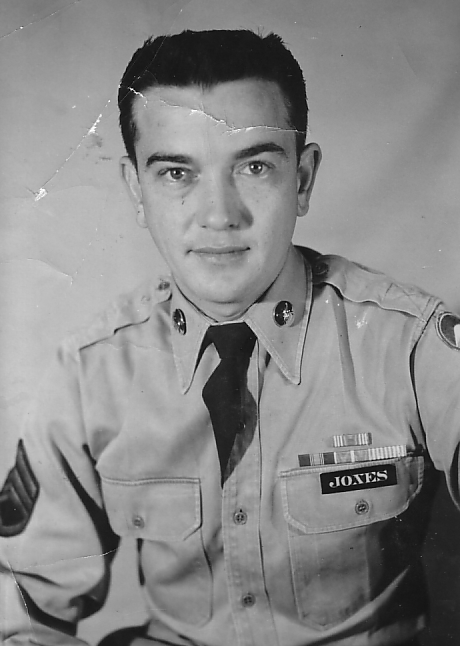
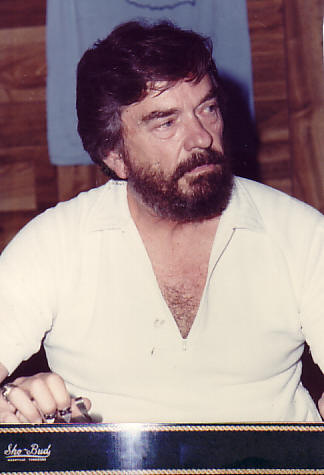
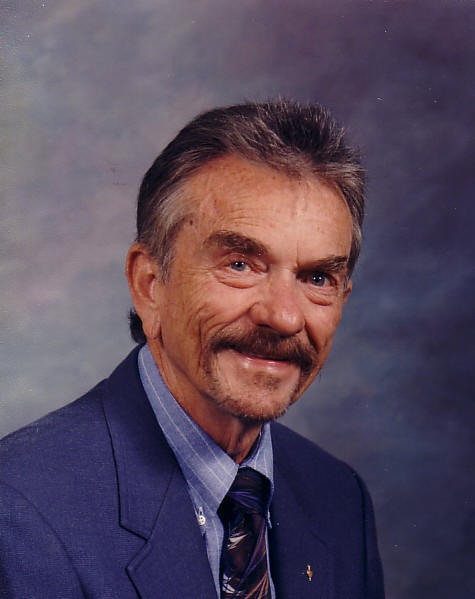
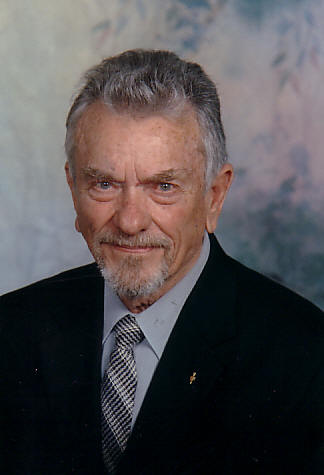
1954...................................................1984 ..................................................2004.....................................................2013
* * * * * * * * * *
I was born in 1931 in southwestern Oklahoma during the great depression and dust storms of the
'dirty thirties' that inspired Steinbeck's novel, The Grapes of Wrath. While a small boy I remember sand drifts higher than barbed wire fences, and the sun dimmed by blowing sand until headlights were needed to drive during the day. We were surrounded by Texas on two sides and rattle-snakes on all sides and my grandfather always joked that if his horse had gone lame before he crossed the Red River to homestead in Oklahoma Indian Territory, we would all be wealthy Texas oilmen today. In reality, Texas at one time claimed ownership of this part of Oklahoma between the north and south forks of the Red River, and the dispute in ownership was eventually settled in 1908 by the US Supreme Court. The residents joked that Oklahoma LOST that dispute and HAD to take Greer County.
It sounds like a cliche, but I really did buy my first guitar at age 14 for $5.00. I soon changed it to a steel guitar by buying a steel-nut and a flat bar so it would sound like the Gene Autry records I listened to on our old battery powered radio. It was a good thing to do because the neck on that old guitar was so bowed that you could have ridden a horse between the strings and the fret-board.
We moved to town in 1945 where we had electricity for the first time, so I saved up enough money working at the local newspaper and by selling my 4-H project calf to order a real steel- guitar and amplifier from either a Montgomery-Wards or Sears & Roebuck
catalogue, I don’t remember which one.
When I began to retrace my journey from the purchase of that first guitar in 1944 to the present, I hadn’t a clue of how difficult it was going to be to remember events from that long ago because many events of the 1950’s and 1960’s were merged in my thoughts. I did a lot of research from picture albums, scrapbooks, etc, including invaluable help from my wife Charlotte who traveled that road with me for more than 50 years.
Most of my associations mentioned herein were known locally and/or regionally, and a few even achieved fame beyond that, however, the people and experiences that I have been able to reconstruct include only a partial list of my associations over those years.
The others, and there were many of them, are only dim faces and events in the shadows just beyond my memory that are not clear enough to include in this writing. So, mea culpa, my memory may have deceived me at times."
Respectfully,
Gene
* * * * * * * * * *
1946-49
By the time I was 16 and had my first driver’s license I was playing music on weekends with local bands for pay so I suppose by definition I was already a professional musician......Not necessarily because I
played well, but more likely because I was the only person around who owned a steel-guitar. I played on a Saturday night music show at the Day General Store, Russell, Oklahoma, on stage shows with KTJS radio personality Jack Wickizer from Hobart, Oklahoma, at veterans clubs and occasionally at less respectable venues. I played those places during my highschool years even though I was under-age, because if you were in a band no one cared. Another kid even younger than me by the name of Roger Miller also played in those same clubs, such as the ‘Red, White & Blue Ballroom’ in Sayre, Oklahoma, realistically known by the locals as the ‘Red, White & Fight’. Lots of experience, not necessarily good, was accumulated in those places much to the chagrin of my parents.
* * * * * * * * * *
1949-50
In 1949 after graduating from high-school, I auditioned for and was miraculously hired as the steel
player for a western-swing band in Amarillo, Texas. Being lucky enough to work full-time with an established band like the Rogers Twins &The Prairie Sons who even had a daily radio show and a DeSoto limousine band-bus was the pinnacle of success for an 18 year old 'wanna-be' musician. I am forever grateful to Bernie and Boyd
Rogers for taking a chance on a green kid and hiring me for my first full-time professional job. I left the band after about a year to join the Army during the Korean War, but The Rogers Twins became legends in the Texas Panhandle and were eventually inducted into the Western-Swing Hall of Fame in California. I have the utmost respect for Bernie and Boyd Rogers, and we remain friends after more than 50 years.
* * * * * * * * * *
1950-52
In 1950, I joined the Army after the Korean War began, and was initially stationed at Fort Leonard
Wood, Missouri, where I played steel while off duty with the Mac Byrd Band five nights a week at the Wagon-Wheel, a well known club on nearby Highway 66. Another steel player, Bud Carter, later founder of Carter Steel Guitars, shares memories of playing at the infamous "Wagon Wheel".
In 1951, I was transferred to a base at Mineral Wells, Texas, where I played steel with a local band. I remember it well because on my last night the bandleader couldn't pay me so he gave me his 5X Stetson, but someone stole it while I was loading my equipment. In those days we depended on my music money to eat because most of my Army pay went for rent. That week we didn't have meat with our meals again. I left there after my discharge from the Army in 1952.
* * * * * * * * * *
1954-56
Japan
In 1954, after a year and a half on a stressful civilian job that refused to insure our mentally retarded daughter, I re-enlisted in the Army and was immediately transferred to Japan where I was again able to play music while off-duty. God bless the military who accepted insurance liability for our daughter when no one else would. This was a God-send for someone like us whose income was less than $300 a month.
The Yokohama Engineer Depot where I was stationed was looking for a musical group to represent the base in the All-Army Far-East Talent Show. In 1955, me and a soldier that I had met named Harold Jenkins, who sang and played guitar, hurriedly put a four-
member band together to audition for the show, and after winning a series of competitions we were selected to represent our Command. We didn't know then that Harold Jenkins would soon become the internationally known Conway Twitty!
Our musical group competing as The Cimmarons won first place in the Recorded Musical Group category and second place in the Live Performance Musical Group category for the US Army Far-East Command (Japan, Guam, Korea and the Phillipines). The Cimarrons also recorded a series of programs that were played on the Armed Forces Radio Network.
The Cimmarons added drums and a trumpet making it a six-piece band, and started playing at
military clubs throughout the Tokyo/Yokohama, Japan area. The Cimmarons had become well known because of the All-Army and the Armed Forces Radio shows, so there were more opportunities to work than time available. In 1956, Harold Jenkins and I returned to the United States together on a USN Troop Transport where we performed the final show ever performed by the Cimmarons. ‘Mabelline’, a song recorded live during one of those shows aboard ship, rose from the ashes again in 1994 and was included on one of Twitty’s compilation albums. My steel guitar had already been shipped home, so I had jury-rigged and old guitar into a dobro and played it with a glass bottle. That recording should have been left in obscurity.
* * * * * * * * * *
1956
Upon returning to the US in 1956, Harold Jenkins received his discharge from the Army, and I was stationed at Fort Sill, Oklahoma, pending transfer to the US Army Helicopter School for pilot training. While there I played steel while off-duty for the Bill Mack Show out of Wichita Falls, Texas. Bill is known as the Midnight Cowboy for his long running night-time radio show for truckers, and for his work on a syndicated television show, Country Crossroads. He also wrote the song "Blue" that made Leeann Rimes a star. We did a
Saturday night television show, and played shows at schools, theaters and parks.
The shows were classic tent-show with the musicians walking through the audience during intermission selling Bill’s records, which he always kept a supply of in the trunk of his car. I always remember one of our shows at Craterville Park, Lawton, Oklahoma, where the ‘star’ appearing with us was Smiley Burnett, who had been the comic Frog Millhouse in the old Gene Autry movies. He was actually a very talented pianist and vocalist, and one of his numbers on the show was a medley of songs that he had written for the Gene Autry movies. During intermissions between shows he told us that he never received writers credit for those songs because he had an agreement with Autry to sell all the songs that he could write to Autry for $5.00. Smiley thought it was a good deal at the time because in their early, lean years, they drove to personal appearances by automobile and he wrote those songs primarily for something to do to fill the time traveling. My childhood hero Gene Autry was apparently already becoming an astute business man, which is probably why he died a multi-millionaire.
* * * * * * * * * *
1956 - 59
In 1956, after being “washed out” of pilot training because of high frequency hearing loss (my hearing already damaged by 10 years in front of loud amplifiers), I was assigned to the Armed Forced Examining and Recruiting Station in Oklahoma City, where I resumed my off-duty music playing.
During that period 1956-59, I worked with various groups, some are listed below:
‘Famous Amos Hedrick’ and the Western All-Stars. Amos had previously been band-manager and fiddle player with Hank Thompson’s Brazos Valley Boys, and had been the arranger for many of
Hank’s albums.
Jack Beasley
Lloyd Rogers and The Western Swing Masters
Bob Woods
Warren Adair
Glen Eddy and the Nightriders
Curtis Wayne
Clarence Bailey
Tommy Bynum and the Southwesterners
Tex Wayne
Charlie Shaw
Red Zellner
Leon “The Demon” Wright
The Elvis rockabilly era of the middle 1950’s virtually eliminated jobs playing the steel guitar, so in 1957 I started playing bass with a R&B group, The Leon "The Demon" Wright Combo. This band, consisting of tenor sax, piano, base, drums, and vocalist “Little Miss Clay The Steam-heat Girl”, was among the first “integrated” bands playing the club circuit in Oklahoma City.
* * * * * * * * * *
1959 - 60
The Country Gentlemen: (Korea)
In 1959, I was again transferred overseas by my primary employer the US Army, this time to
Korea. Again, I found that musicians and bands were in short supply in that country, and my opportunities to play my steel on off-duty jobs was limited only by my inability to be in two places at the same time. I played steel with a group called the Country Gentlemen, who booked the military clubs and had a radio program on Armed Forces Radio.
It was during the recording of one of our shows that I picked up a trade magazine during a break and saw a picture of someone on the cover named Conway Twitty who looked like Harold Jenkins, the musician I had worked with in Japan. On reading further I found that it was indeed him. He had since become a rock & roll star with a gold record and had changed his name.
When the 1959 annual competitions for the All Army Far-East shows came, the Country
Gentlemen band entered the contest. Our vocalist was Mac Curtis, who had previously performed professionally, and he gave us the mixture of country and rockabilly that was popular at that time. The Country Gentlemen won First and Second Place Awards in separate categories of the 1959 US Army Pacific Entertainment Contest. Mac Curtis continued with an entertainment career after leaving the army and is currently a radio personality on an FM radio network in Texas, and has been inducted into the Rockabilly Hall of Fame.
In 1960, after returning to Oklahoma City from Korea, I worked with Merl Lindsay’s Oklahoma Night-Riders, a touring western-swing band with headquarters in Oklahoma City. I was still in the Army and attached to the Army Recruiting Station so I was unable to work with the band full-time, but my parttime work with Merl led to a full-time job with the band after I left the Army.
* * * * * * * * * *
1961 - 63
Okinawa
In 1961 the Army sent me on another assignment overseas, this time to
Okinawa. It turned out to be a great assignment with almost unlimited opportunities to play music off-duty. There were numerous military installations with clubs needing bands and my flexible military job in Security allowed me nights and
weekends off duty to play music. I worked Saturday afternoons with the Topper NCO Club Grand Ole Opry on Kadena Air Force Base, and seven nights a week with Pat Patterson & the Sons of the South at various clubs on the Island. I also worked with Lucky Mitchell and the Cimmarron Cowboys at the Okinawa "Ebb Tide" Club, shown in this picture. My old Fender Custom three neck steel that I had played so long was about used up, so I ordered a Fender 1000 from a dealer in the US and had it shipped to Okinawa. This was my first pedal steel guitar.
* * * * * * * * * *
1963 - 64
While in Okinawa, I had become friends with a great guitar player, Jerry Haddock, who had returned to the US before me and was touring with the Merl Lindsay Ozark Jubilee Band. He wrote me that Merl's steel player, Jim Murphy, had left and did I want the job? I decided to leave the Army for a full time job with the Merl Lindsay band, so I returned to Oklahoma City from
Okinawa in November 1963 and left town on Merl’s bus the next day. Merl’s headquarters was his club, Lindsay-Land in Oklahoma City, and he was touring the southwestern United States. I usually never knew where we were, even what state we were in, we just unloaded, played a job, loaded our equipment and hit the highway to the next job, and I got my indoctrination as a touring musician real fast. If we were lucky we arrived at the next destination in time to rent a motel room and get a few hours sleep before going back to work. We played private clubs, military clubs, and “package shows” with performers of that era such as Jimmie C. Newman, Homer & Jethro, Billy Walker, Hank Thompson and many others. In 1964, Merl Lindsay was diagnosed with cancer and soon became too ill to travel, so the band completed the remaining dates that were booked and then disbanded. Merl died in 1965.
* * * * * * * * * *
1964 - 65
In the meantime, I had returned to the security of a “day job” and had become a career member
of the Oklahoma City Fire Department. I had decided that being a musician was a great “part-time” job, but there was too much insecurity in the life of a full-time musician, at least for me, and I was now playing music only on weekends.
In 1964 the Diamond Ballroom, the largest music club ever built in Oklahoma City, opened and myself and some other former members of the old Merl Lindsay Band were hired as the staff band for the new Diamond. Performers such as George Morgan, Roy Drusky, and Stonewall Jackson, to name a few, appeared with the staff band on a promotional television program and at the club.
In 1964, I played steel with the Henson Cargill television show and on some of his out of
town shows. There was never a dull moment working with Henson. Henson's best known hit "Skip A Rope" was recorded later.
In 1965, my friend Harold Jenkins now known as Conway Twitty, and who had been a successful rock & roll performer for several years, decided to return to country music and moved to Oklahoma City to make a new start. I worked with his band The Lonely Blue Boys while he was making the transition, but since I had
recently begun a new career with the Oklahoma City Fire Department my freedom to travel with the band was limited. As his new country records became popular, and he became more in demand for bookings, I eventually had to make a decision whether I wanted to become a full time musician again, or to stay with my new career with the Oklahoma City Fire Department. I decided to remain with the Fire Department where I could qualify for a good retirement. I didn't think I could do that as a full time musician....Conway's name was "on the bus", not mine. After that, Lew Houston played steel for Conway for awhile and in 1968 John Hughy started with Conway and remained with him for the next 20 years.
* * * * * * * * * *
1966 - 1970
Bobby Barnett
* * * * * * * * * *
Jack Lee and the Drivers
In 1966 Gene Sullivan, (When My Blue Moon Turns To Gold Again), owned a recording studio, and was calling me occasionally to record with
some of his clients. On one of those sessions I played on a demo for a young vocalist named Jack Lee that began a long time friendship and one of my longest working relationships in music. We played some of the better venues in the area such as the Skirvin Hotel, and with Tex Beneke and the Glen Miller Orchestra at the Oklahoma City Municipal Auditorium. I played steel with Jack Lee & The Drivers until 1970 when I stopped playing music to focus on my career with the Oklahoma City Fire Department and to attend college. I had dropped out of school to play music in 1953 and it had only taken me 17 years to get back to it. I was not involved in music in any way between 1970 and 1984 when I retired from the Fire Department and returned to playing music.
* * * * * * * * * *
1984 - 93
Some of the bands that I worked with after I completed my career with the Oklahoma City Fire Department and started playing music again were:
Gene Dorrough and Cherokee Valley Boys.
Russell O’Neal & The Western Strings.
The Klopfensteins
* * * * * * * * * *
1993 – 1996
Back-Porch Jamboree country music show, Kingfisher, Oklahoma.
Harvey Derrick
* * * * * * * * * *
1996 – 1999
Harrah Theater Saturday Nite Jubilee country music show, Harrah, Oklahoma
* * * * * * * * * *
2000 – 2001
University of Central Oklahoma Preservation Playhouse Theater, Guthrie, Oklahoma.
"Country Cool & Classic" music show.
"Take Me Back To Tulsa" ,
(a Bob Wills musical/drama.)
"Hot Country" music show.
* * * * * * * * * *
2002 - 2003
* * * * * * * * * *
2003 - 2004
Trolley Town Music Hall country & gospel music show, El Reno, Oklahoma
* * * * * * * * * *
2005
Retired from playing the Steel-Guitar
* * * * * * * * * *
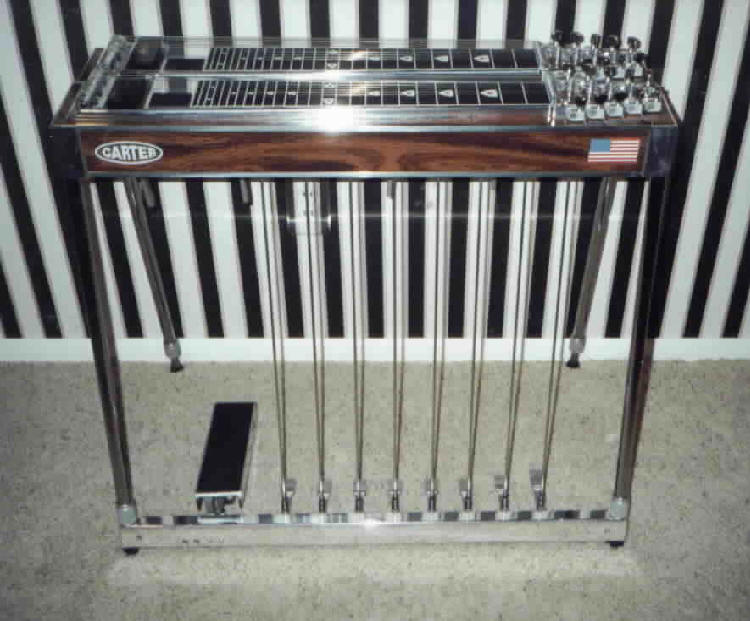
ALL RIGHTS RESERVED


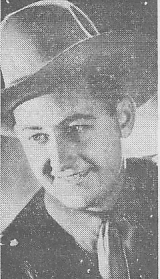
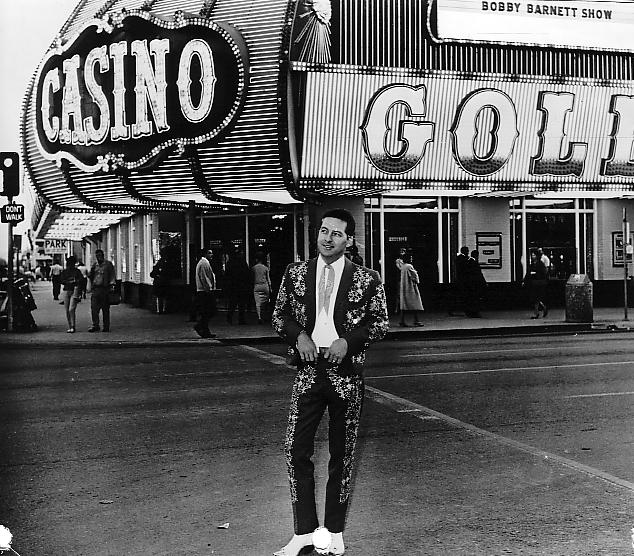






_small.jpg)



